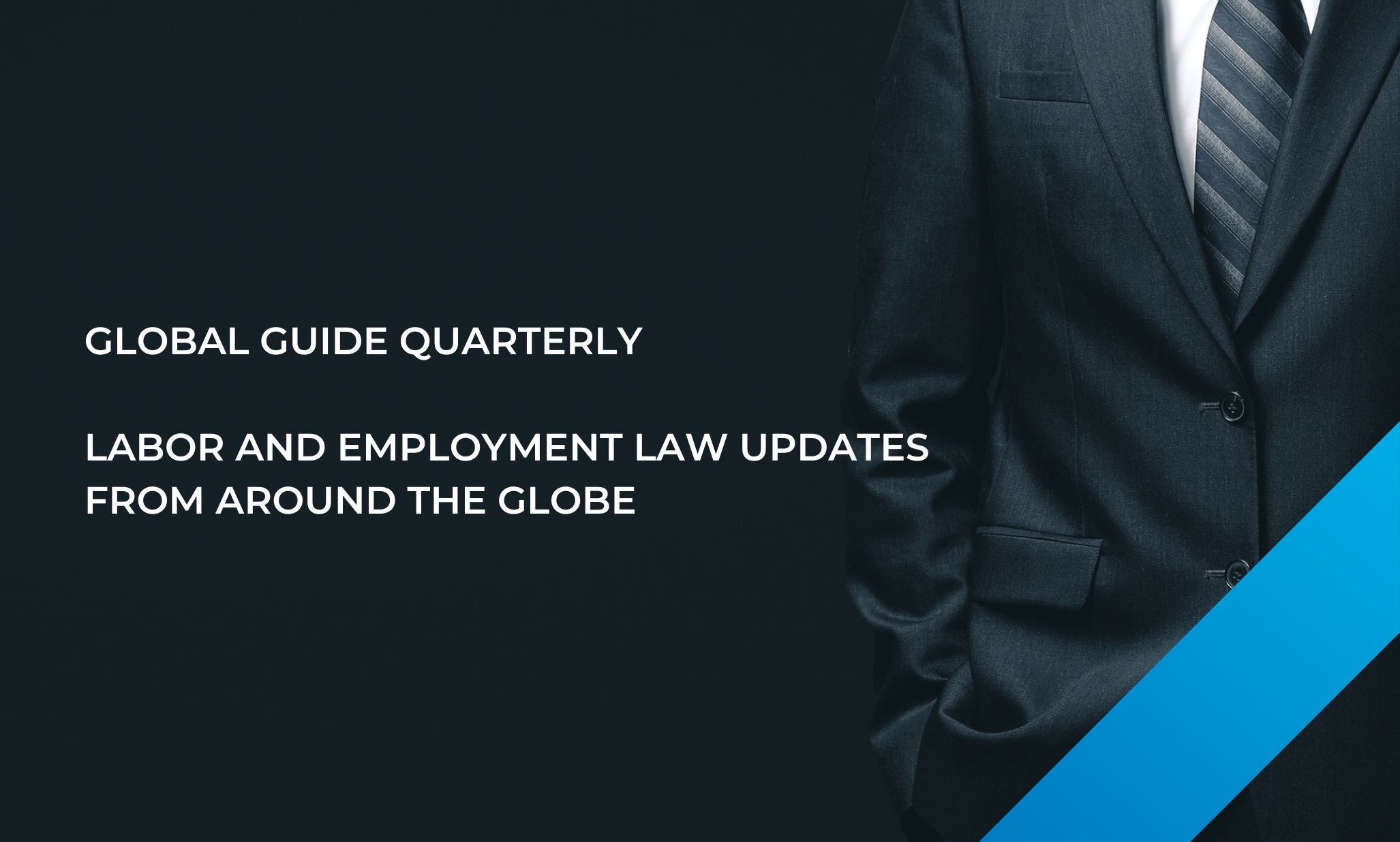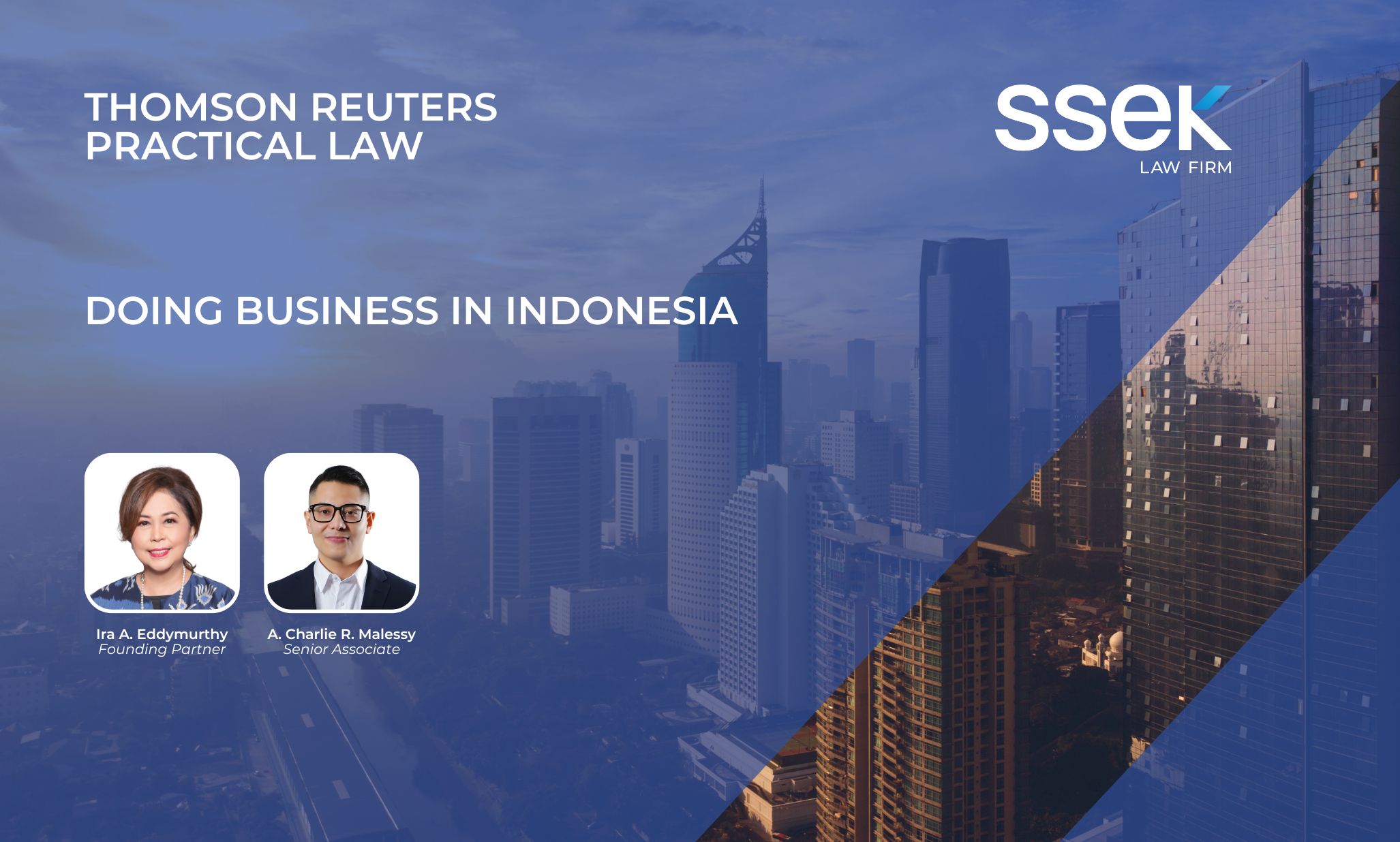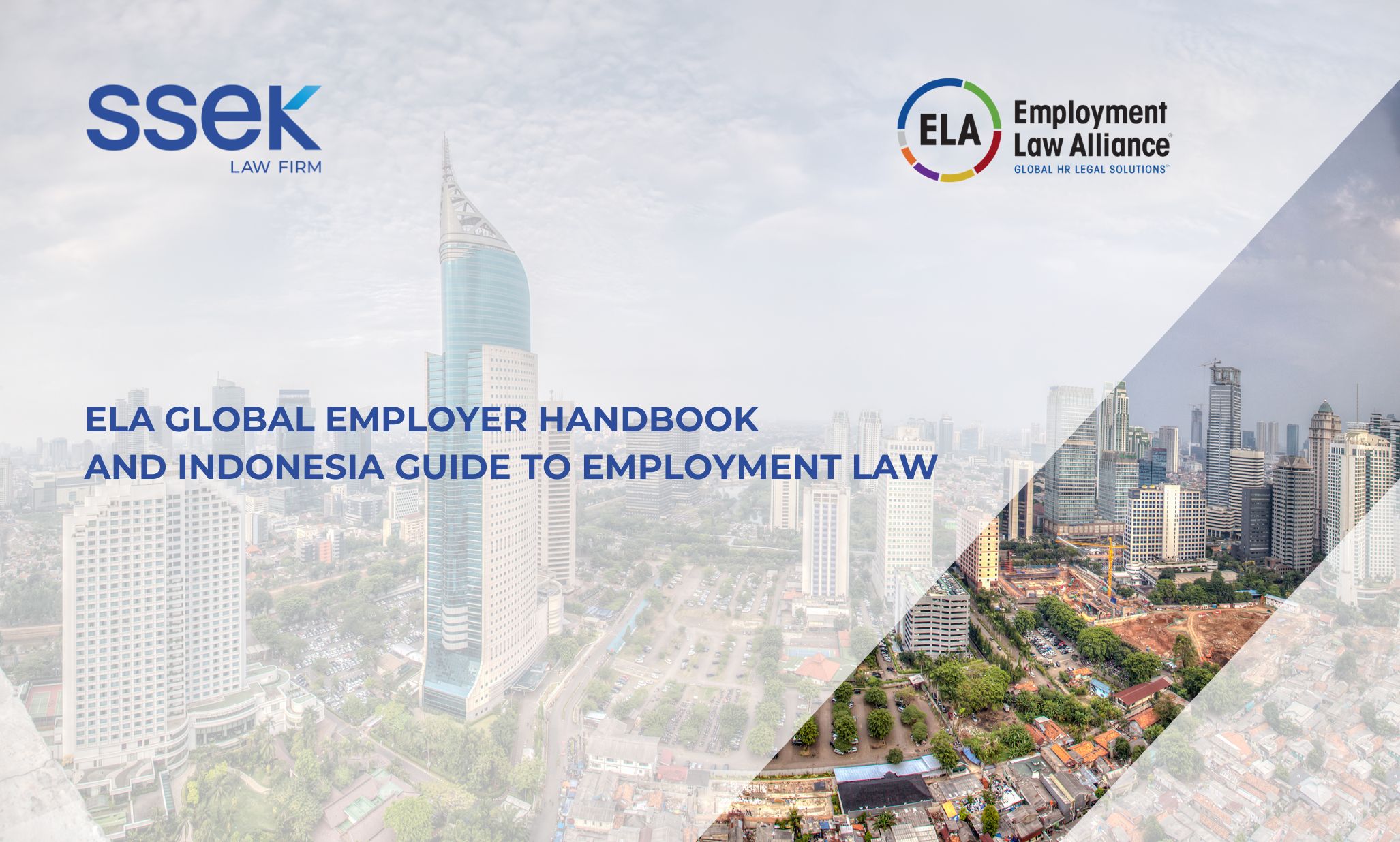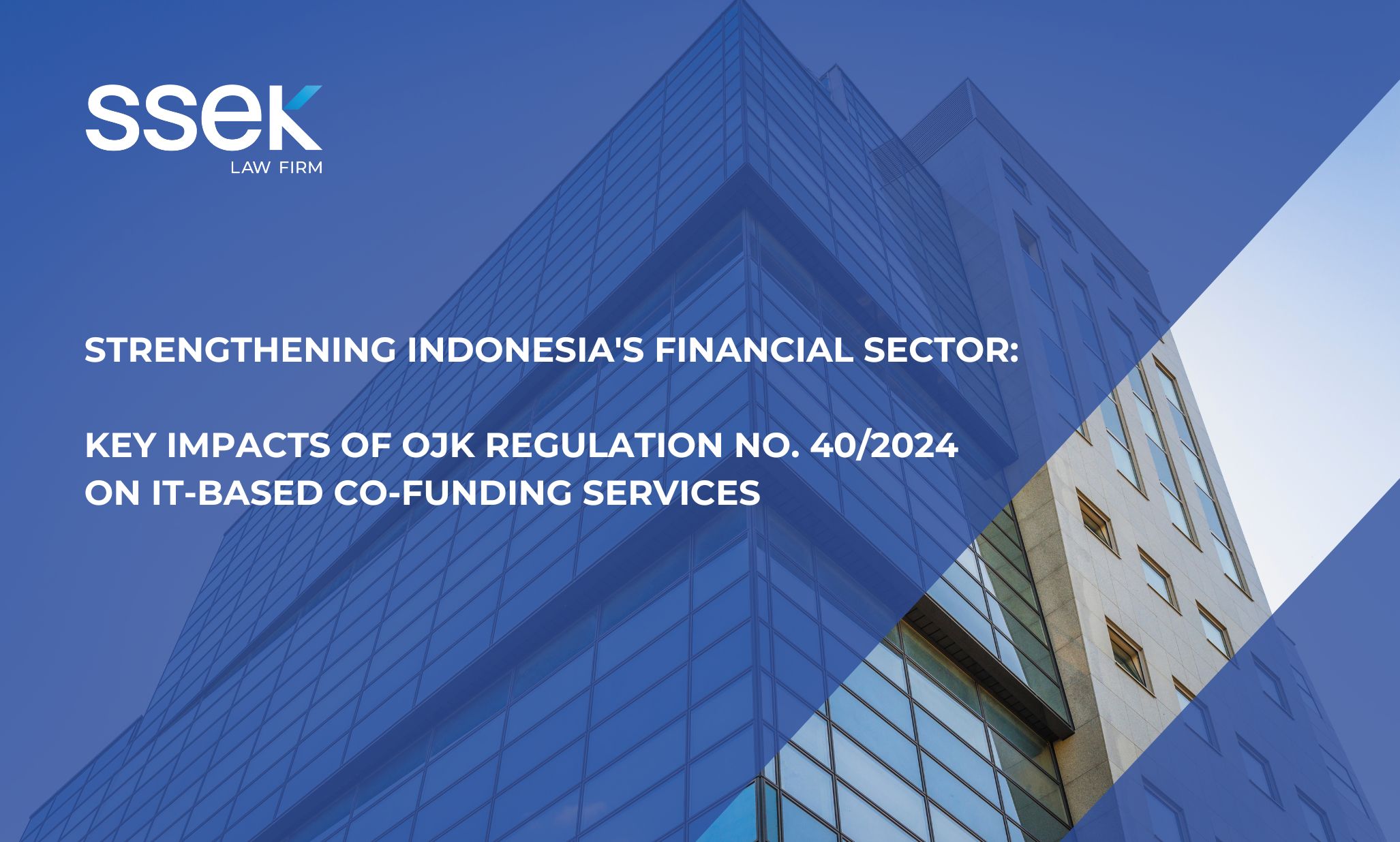

The Indonesian President, Joko Widodo, has announced plans for a major overhaul of investment-related laws and regulations through the introduction of a so-called Omnibus Law. This Omnibus Law would act as a regulatory umbrella, providing an overarching framework for various laws and regulations that will, hopefully, ease and increase investment in the country and reduce bureaucratic inefficiency. The idea of the Omnibus Law surfaced just after President Joko Widodo began his second, and final, five-year term in October 2019.
Employment rules and regulations are expected to be included under the planned Omnibus Law framework. The Indonesian Employment Law will be overhauled with the introduction of the Draft Bill on Job Creation ("Draft"). This would, of course, constitute a major reshaping of employment law, but there have been smaller changes over the years, notably Law No. 13 of 2003 on Employment, Law No. 40 of 2004 on Social Security System, and Law No.24 of 2011 on the Social Security Organizing Body (Badan Penyelenggara Jaminan Sosial or "BPJS").
The government formally submitted the Draft to the House of Representatives (DPR) on February 12, 2020. The Draft consists of 15 chapters and 173 articles in the 1028-page document relating to the creation of employment opportunities in Indonesia. The amendment of the Indonesian Manpower Law starts at Chapter 4 Article 88 and runs until Article 93.
The highlights are as follows:
Expatriate Employees:
- Articles in Employment Law: Article 42, Article 43 (revoked), Article 44 (revoked), Article 45, Article 46 (revoked), Article 47, Article 48 (revoked), Article 49
- New Rules under the Draft:
-
- Each employer employing an expatriate must have a permit issued by the central Government.
- New presidential regulation will be issued to regulate specific positions and terms for expatriate employees.
Employment Relationship:
- Articles in Employment Law: Article 56, Article 58, Article 59 (revoked), Article 61, Article 61 A (new), Article 62
- New Rules under the Draft:
-
- New government regulation will be issued to regulate fixed-term employment agreement and/or completion of work.
- Completion of work is added as a reason to terminate an employment relationship.
- Compensation pay must now be paid to a fixed-term or completion of work employee when their employment is ended, as regulated by the new government regulation.
Outsourcing:
- Articles in Employment Law: Article 65 (revoked), Article 66
- New Rules under the Draft:
-
- Outsourcing of service (business to business) regulation under the Manpower Law is revoked.
- Labor supplier will be responsible to handle all terms and conditions of employment including any dispute involving its employee.
- New government regulation will be issued to regulate outsourcing of labor.
Work Hours:
- Articles in Employment Law: Article 77, Article 77 A (new), Article 78, Article 79
- New Rules under the Draft:
-
- Flexible working hours can be regulated internally by the company.
- New government regulation will be issued to regulate working hours and overtime.
Remuneration:
- Articles in Employment Law: Article 88, Article 88 A (new), Article 88 B (new), Article 88 C (new), Article 88 D (new), Article 88 E (new), Article 88 F (new), Article 88 G (new), Article 89 (revoked), Article 90 (revoked), Article 90 A (new), Article 91 (revoked), Article 92, Article 92 A (new), Article 93, Article 94, Article 95, Article 98
- New Rules under the Draft:
-
- Central government stipulates policy on remuneration.
- New government regulation will be issued to regulate remuneration.
- The formula for calculating minimum wage is regulated in the Draft instead by government regulation.
- Minimum wage for labor-intensive industries is regulated by the governor in the respective region.
- Micro and small businesses are exempted from minimum wage requirements.
- Employees' wages are considered a preferred debt (didahulukan) that are paid in advance when a company goes bankrupt or is liquidated.
Termination:
- Articles in Employment Law: Article 150, Article 151, Article 151 A (new), Article 152 (revoked), Article 153, Article 154 (revoked), Article 154 A (new), Article 155 (revoked), Article 156, Article 157, Article 157 A (new), Article 158 (revoked), Article 159 (revoked), Article 160, Article 161 - 172 (revoked)
- New Rules under the Draft:
-
- Employer can terminate an employee due to poor performance without court approval.
- New government regulation to be issued on termination procedures due to acquisition, merger, inefficiency or bankruptcy, including severance pay and service pay entitlements.
- Service pay (uang penghargaan masa kerja) will now be a maximum of eight months’ wages, from the previous 10 months.
- Compensation pay (uang penggantian hak) that was regulated specifically under the Employment law is revoked by the Draft.
Social Security:
- Articles in Employment Law:
-
- Article 18 of Law No. 40 of 2004 on Social Security System
- Article 6 of Law No. 24 of 2011 on BPJS.
- New Rules under the Draft:
-
- New mandatory social security on termination of employment is introduced.
Additional Rewards:
- Articles in Employment Law:
-
- Article 92 of the Draft
- New Rules under the Draft:
-
-
A reward of 1 month's wage to be paid to employees having worked for less than 3 years and a maximum of 5 months' wages to be paid to employees having worked for 12 years or more no later than one year after this law is enacted.
This does not apply to micro and small businesses.
-
Comment
As part of the Omnibus Law, the Draft Bill on Job Creation compiles and revises several regulations related to job creation, from business licensing to employment-related matters. It is hoped that the enactment of the Draft will simplify employment regulations in Indonesia and provide greater certainty to employers here. This in turn could help attract more investors to Indonesia and push job growth.
This publication is intended for informational purposes only and does not constitute legal advice. Any reliance on the material contained herein is at the user's own risk. You should contact a lawyer in your jurisdiction if you require legal advice. All SSEK publications are copyrighted and may not be reproduced without the express written consent of SSEK.









